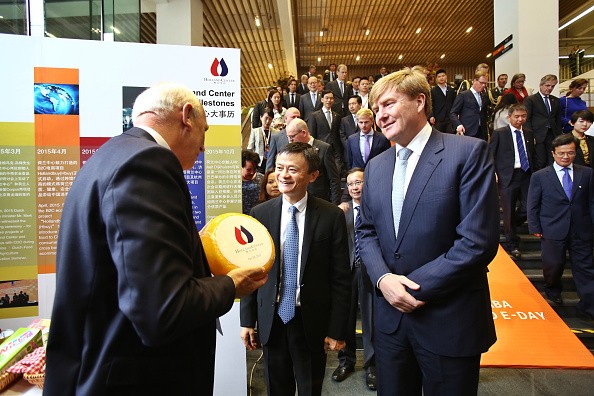Chinese e-commerce giant Alibaba Group continues with its expansion, becoming popular in Europe during its Singles' Day shopping festival last year, according to an article by china.org.cn.
The event also made the Chinese company the world's top e-commerce marketplace in terms of transaction value, with gross merchandise volume worth more than $485 billion sold last year.
Using AliExpress, the company continues to expand overseas, challenging global rivals such as Amazon and eBay, the report said.
AliExpress was founded in 2010 to cater to overseas customers. It is the counterpart of Alibaba's business-to-customer (B2C) site, TMall.
According to Dai Shan, president of Alibaba's business-to-business (B2B) unit, AliExpress has more than 100 million international buyers.
Alibaba expansion is part of efforts to find new sources of income as the online retail market in China is expected to slow down to a 15 percent annual growth rate, consultancy Mintel said.
European expansion
AliExpress is becoming popular among European users, for it alters their shopping behavior and builds a personal connection.
"Wedding is perhaps the most important occasion for women. In the past, Spanish women never bought wedding dresses online. But now, taking a look at AliExpress before buying is becoming a ritual," Zuniga Perez Pell, an employee at AliExpress' Spanish operations, said.
E-commerce promotes trade and economic relations between countries as well as provides a major channel to sell and buy products around the world, according to Alfonso Noriega Gomez, economic and commercial counselor of the Consulate General of Spain in Shanghai.
"Through Tmall and Tmall Global, Chinese consumers are able to enjoy products from Spain. We hope AliExpress can bring alive the virtual Silk Road by connecting Chinese merchandise with countries including Spain," he said at an AliExpress conference in Hangzhou earlier this month.
According to AliExpress, customers from more than 220 countries and regions have used the platforms to place orders, with Russia, the U.S. and Spain as the top three countries in terms of total spending.
In Russia, AliExpress has partnered with local payment providers and made a strong social media presence that helped it become a top player, Shen Difan, its general manager in Russia, said.
"AliExpress is planning to tie up with more local vendors, ship from local warehouses and provide local after-sales service, including a no-excuse return policy in 72 hours," Shen said.
Using Cainiao technology, the company has also shortened the delivery period to four days, with the aim to reduce global delivery to within 72 hours in three to five years.
The company is expanding into several markets which lack e-commerce infrastructure. This move is crucial to its adoption, the report said.
In some countries, Cainiao logistics network has partnered with postal services to facilitate customs clearance, which includes partnerships with the U.S. Postal Service, Brazilian Post, Singapore Post and Australian Post, Wan Lin, Cainiao's president, said.
Shen said that AliExpress plans to build a "cyber Silk Road" to serve about 1 billion people overseas.
"The Belt and Road Initiative, which aims to strengthen infrastructure, economic and trade ties in the Eurasian and Africa region, will lend AliExpress new momentum to grow its customer base tenfold in less than seven years," Shen added.



























